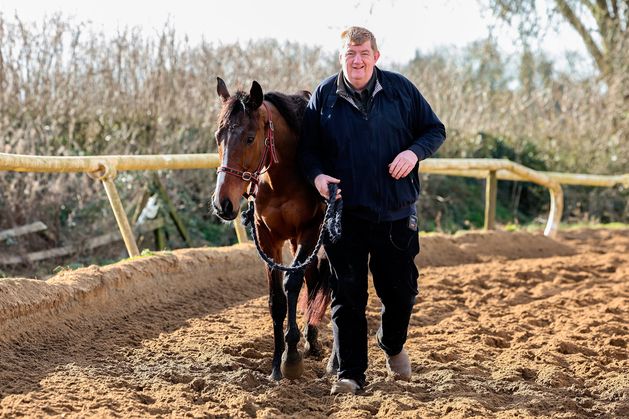John ‘Shark’ Hanlon with Hewick. Picture: PA Media
Trainer John ‘Shark’ Hanlon has been given a 10-month ban following a hearing before the Irish Horseracing Regulatory Board disciplinary panel.
Hanlon, who trains last year’s King George VI Chase hero Hewick, was found to have acted in a manner that “caused significant prejudice to the integrity, proper conduct and good reputation of the sport of racing” in the removal of a dead horse from his yard earlier this year.
The horse was carried on an open trailer which was towed by Hanlon’s branded horsebox, with the body left on display to the public after a tarpaulin became displaced during the journey.
A member of the public videoed the incident and it was widely circulated on social media, which attracted further media attention and led to the IHRB bringing charges against Hanlon, saying the conduct “attracted significant public opprobrium and adverse comment” both for the trainer personally and racing in general.
Following a hearing on August 30, the disciplinary panel were satisfied Hanlon had breached rule 272(i) in that he was “grossly negligent in the supervision of the transport of the horse carcass on the day in question” and there was “high culpability” on his part.
They said inadequate measures had been taken to secure the tarpaulin before the journey began and felt Hanlon’s “gross negligence” merited a 10-month withdrawal of his licence and a €2,000 fine.
However, following admissions from Hanlon on the morning of the hearing “regarding his conduct and the consequences thereof”, plus an unannounced inspection of his yard that showed no welfare issues and no relevant previous rule breaches, they left the door open to later halving his suspension.
The ruling stated: “The Committee is disposed to consider a future application to conditionally suspend the last five months of the 10-month withdrawal sanction. The possible partial suspension of such a sanction to reflect mitigating factors is consistent with the previous approach of this Committee.”

